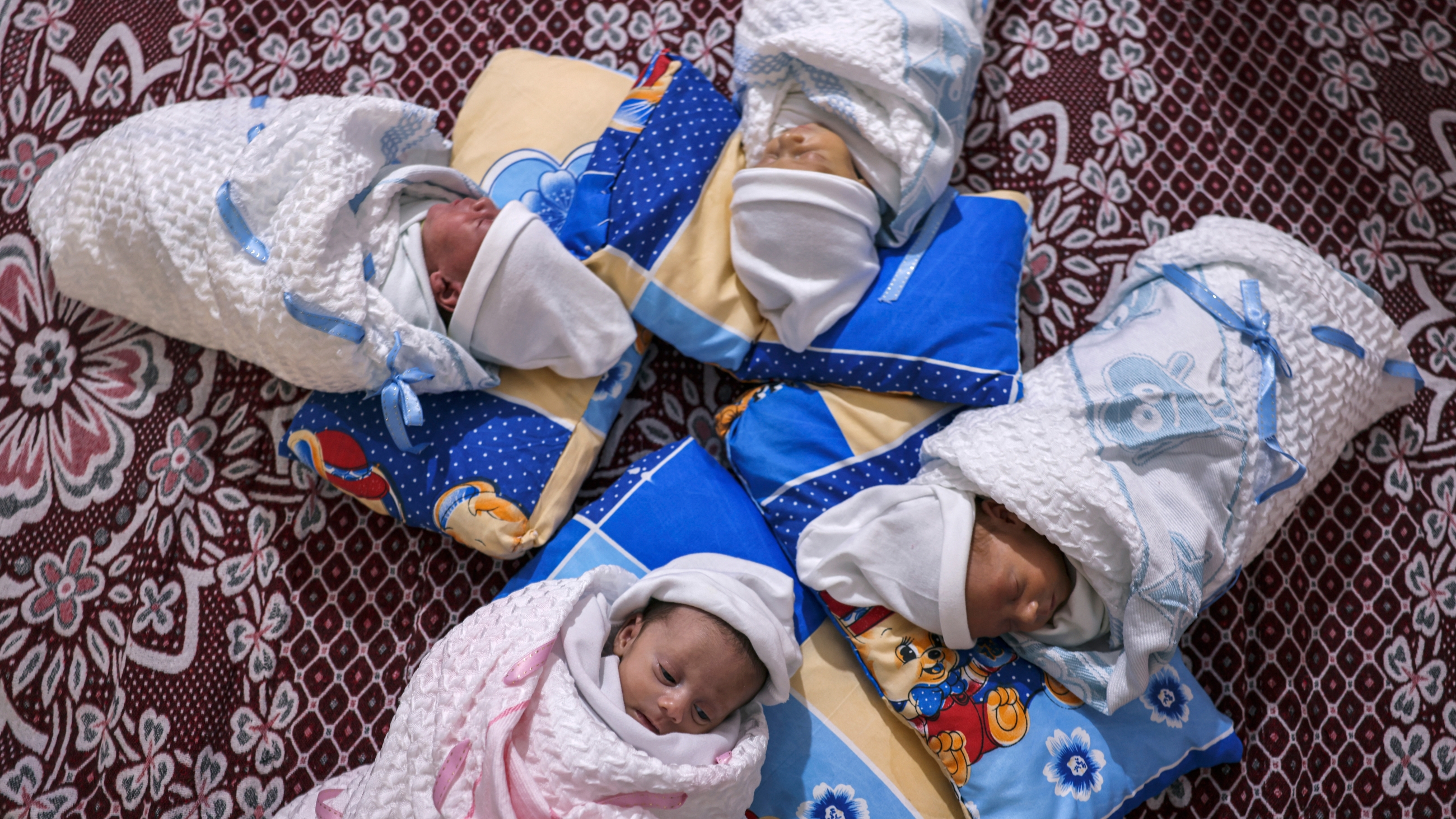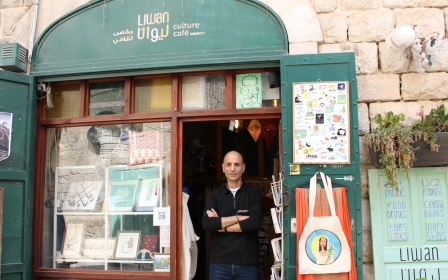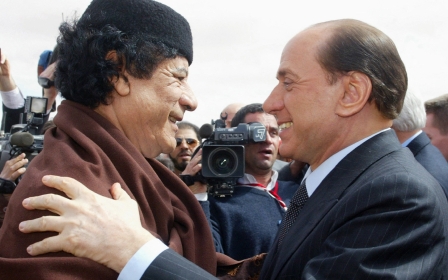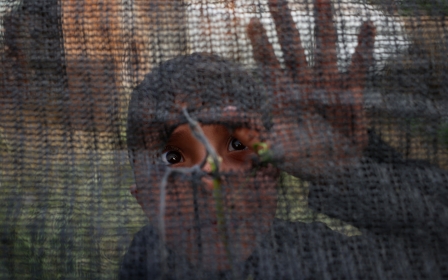Palestine: Quadruplets born from prisoner's smuggled sperm

The family of a Palestinian prisoner's wife who gave birth to quadruplets using smuggled sperm have welcomed her and the babies home with "great joy" after they were released from the hospital.
Rasmiya Shamali returned to her hometown of Gaza on Monday with the four babies - three boys and one girl.
They were born last month in a hospital in occupied East Jerusalem.
The 38-year-old is married to Ahmed Shamali, who has been held in Israeli detention since 2008 serving an 18-year sentence over his "involvement in anti-occupation resistance activity".
New MEE newsletter: Jerusalem Dispatch
Sign up to get the latest insights and analysis on Israel-Palestine, alongside Turkey Unpacked and other MEE newsletters
Rasmiya, who resides in the Al-Shujaia neighbourhood of Gaza City, told Al-Araby Al-Jadeed newspaper that her attempts to conceive using smuggled sperm began in 2018.
The first two attempts failed, but the third in October 2022 proved successful and she became pregnant with four children: three boys named Abdul Rahim, Rakan, and Rayan, and a girl called Najah.
Rasmiya added that her pregnancy was filled with challenges due to the weight of carrying quadruplets. She adhered to doctors' advice not to reduce the number of fetuses in her womb, which could have affected her pregnancy.
In May, she was transferred from Al-Shifa Hospital in Gaza to Al-Makassed Hospital in Jerusalem after experiencing stress.
Najah Shamali, Ahmed's mother, told Al-Araby Al-Jadeed that the children reminded her of her son, with whom Rasmiya already had two children - now aged 15 and 17 - who were conceived before his arrest.
"The prisoners continue to challenge the occupation in all its forms, including through smuggling sperm to give birth to ambassadors of freedom," Najah said.
She added that "happiness remains incomplete in the absence of their father," whose sentence ends in three years.
Defying occupation with smuggled sperm
Palestinian detainees and their families resort to conception through smuggled sperm as the only means available to those held in lengthy or indefinite prison terms, with restricted family visits.
Some Palestinian prisoners are reportedly permitted conjugal visits where they can be intimate with their partners, however many decide not to opt for this due to a lack of trust regarding privacy issues.
Ahmed and Rasmiya's quadruplets raise to 122 the number of children that have been born to parents inside Israeli jails over the last 10 years, according to Al-Araby Al-Jadeed.
In August 2012, Ammar al-Zaban became the first Palestinian prisoner known to have fathered a child with his wife using smuggled sperm.
Since then, smuggling sperm has come to be seen as a key part of the Palestinian struggle against the Israeli occupation.
However, the smuggling process used remains shrouded in secrecy, with the prisoner's family having the responsibility for delivering the sperm to special laboratories.
In Shamali's case, the process began two days after receiving the smuggled sperm and delivering it to the laboratory.
Abdullah Qandil, the director of the Waed Association for Prisoners and ex-Prisoners, said that Palestinian prisoners' will to father children while incarcerated "symbolises their ability to create life despite pain, constraints, and imprisonment".
"It serves as a defiant response to the Israeli occupation's attempts to diminish their spirit within prison walls," Qandil said.
According to the Addameer rights group, there are 5,000 Palestinian political prisoners in Israeli jails as of June 2023.
Middle East Eye delivers independent and unrivalled coverage and analysis of the Middle East, North Africa and beyond. To learn more about republishing this content and the associated fees, please fill out this form. More about MEE can be found here.





